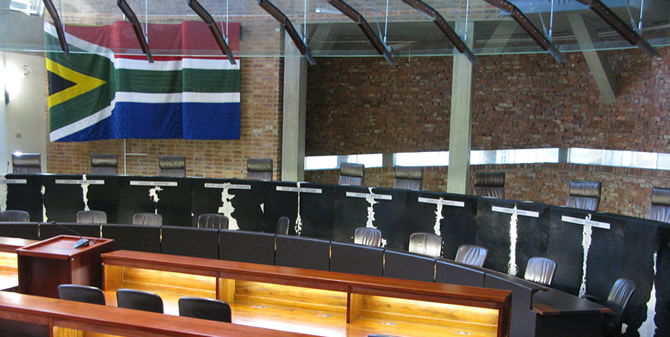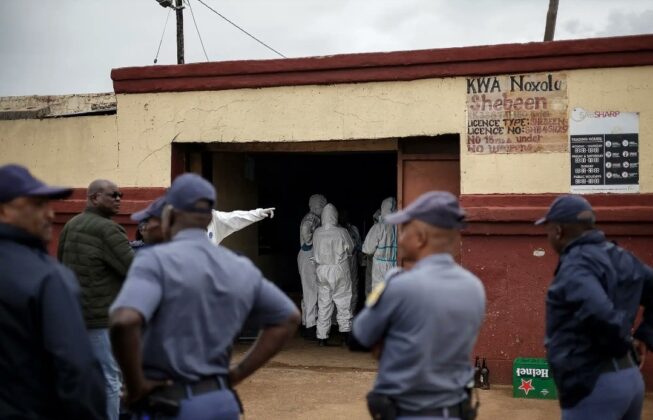
Former President Jacob Zuma’s legal team argues before the Constitutional Court, challenging President Cyril Ramaphosa’s decision to sideline Police Minister Senzo Mchunu and appoint Firoz Cachalia—a case that could reshape how executive powers are contested in South Africa. Image: ConCourt.
(The Post News)– President Cyril Ramaphosa has cautioned that Jacob Zuma’s legal challenge over his cabinet decisions could put serious strain on the Constitutional Court. He warned that if the court hears the case directly, without it going through the lower courts first, it could set a precedent that floods the apex court with politically sensitive disputes.
In his written argument to the court, Ramaphosa said that if the court decides that this case falls under its exclusive jurisdiction, it will have far-reaching and punitive repercussions because all cases involving cabinet reshuffles and arguments that the president has in some way failed to uphold and defend the Constitution will come to this court without first appearing before any other court.
Zuma and his political party, uMkhonto weSizwe (MK), are challenging Ramaphosa’s decision to place Police Minister Senzo Mchunu on special leave and appoint Firoz Cachalia to head a judicial inquiry into allegations of criminal networks operating within the police service and judiciary.
The controversy began after KwaZulu-Natal Police Commissioner Lieutenant-General Nhlanhla Mkhwanazi alleged that organized criminal syndicates had infiltrated high levels of law enforcement, politics, and the judiciary. In response, Ramaphosa launched an inquiry and temporarily removed Mchunu from his post. But Zuma’s legal team argues the president overstepped his powers.
Advocate Anton Katz, representing the MK party, told the court that the constitution allows for an acting president but not for an acting minister. According to Katz, the president can only appoint and remove ministers; he cannot suspend them. He added that Ramaphosa could fire Mchunu and reappoint him later if cleared of any wrongdoing.
Katz also questioned Ramaphosa’s appointment of Cachalia. While Ramaphosa has said that Cachalia is not an “acting minister,” Katz claimed that his role is being framed as one. According to Ramaphosa’s submission, however, Cachalia is not acting but has been given full Cabinet status for the purposes of leading the commission.
Ramaphosa’s legal team is expected to argue that his decisions were constitutional and taken in the interest of good governance and stability in law enforcement. The court’s ruling may have implications for how future cabinet disputes and presidential decisions are contested in court.
Journalist-Nkosinathi@thepostnews.net



